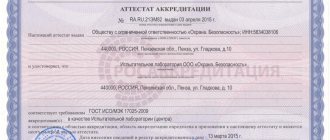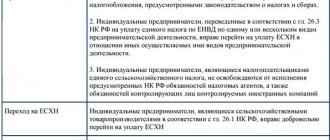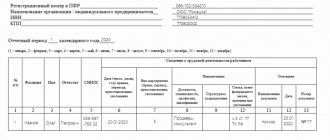What new information should legal entities enter into the EFRSDLE?
The following must now be entered into the Unified Federal Register of information on the facts of the activities of legal entities, individual entrepreneurs and other economic entities:
- information about the sale of the enterprise or its lease;
- notice of liquidation of a legal entity;
- notification of reorganization of a legal entity;
- notification of a reduction in the authorized (share) capital of a legal entity;
- information about the creditor, debtor and the person involved in interacting with the debtor in order to return the overdue debt, i.e. information on the involvement of debt collectors by creditors. At the same time, a special procedure has been established for the provision of this information from the register, and restrictions regarding the publication of information about the debtor in the public domain.
If liability for non-disclosure of information in the Fedresource were limited to Article 14.25 of the Code of Administrative Offenses of the Russian Federation, then nothing could be written about this type of liability for the Fedresource. In fact, if you don’t open a message in Fedresurs, you can lose almost everything you have. Moreover, when we say everything, we mean exactly all the property you have, with only rare exceptions. But how can you lose all your property for such a small violation as simply not disclosing a message in the Federal Resources Agency? Let's figure it out together. On the one hand, many are mistaken in good faith that liability for failure to submit facts of activities of legal entities to the Unified Federal Register is really limited by paragraphs. 6-8 of Article 14.25 of the Code of Administrative Offenses of the Russian Federation. It provides only minimal punishments - from a warning to a fine of 50 thousand rubles, and only in exceptional cases - in case of repeated violations - disqualification of the head of the company. But there is not a word here about the fact that there are other types of liability for non-disclosure of information in the Federal Resources Agency. Where then does the conclusion come from that you can lose all your property?! Unfortunately, they often look at the EFRSFYUL and responsibility for non-disclosure of information therein very superficially, limiting the degree of consequences for non-disclosure of information only to Article 14.25 of the Code of Administrative Offenses of the Russian Federation. Meanwhile, the list of upcoming consequences is much wider. For example, if information about the reorganization or liquidation of a company or termination of the status of an individual entrepreneur is not disclosed on time, the tax service has the right to refuse. (see the list of grounds for refusal by the Federal Tax Service in 129 Federal Law). Until you post on the EFRSFYUL website information about the intention of the creditor or debtor to file a bankruptcy claim, the court does not have the right to accept your application. But not even all courts know about this. This change came into effect on January 1, 2018. If a notice is published in the EFRS in relation to one applicant for a pledge of movable property, but not in relation to another. The first one will have the priority right to collect the collateral. And finally, the latest changes to the law, from which it follows that it is possible to impose a penalty on all the property of the owner if he has not disclosed information to the Federal Resources Agency. These are changes from mid-summer 2021 to the Bankruptcy Law. Article 61.11 appeared, according to the requirements of which, the controlling person of the debtor is automatically found guilty and brought to subsidiary liability, hereinafter quoted “...2. Until proven otherwise, it is assumed that full repayment of creditors’ claims is impossible due to the actions and (or) inaction of the controlling debtor in the presence of at least one of the following circumstances: ...5) on the date of initiation of the bankruptcy case, mandatory deposits in accordance with the federal by law, information or false information about a legal entity has been entered: into the Unified Federal Register of Information on the Facts of the Activities of Legal Entities in terms of information, the obligation to enter which is assigned to the legal entity.” As we see, the law does not make exceptions for types of messages, so even for failure to publish any type of message you can be held vicariously liable. If you still have questions about liability for non-disclosure of information in Fedresurs, you can contact us and ask them by phone
In what other cases does an organization need to submit information to the register?
Legal entities enter information in the cases established in paragraphs. “k” - “n.3” clause 7 of Art. 7.1 of the Law on State Registration of Legal Entities and Individual Entrepreneurs, as well as in cases provided for by other federal laws. For example, a legal entity must enter information into the EFRSFYUL:
- on the value of the net assets of the JSC or LLC (if it has publicly placed bonds or other equity securities) as of the last reporting date;
- on encumbering movable property belonging to a legal entity with a pledge;
- about the emergence of signs of insufficiency of property in accordance with the legislation on insolvency (bankruptcy);
- on obtaining a license, suspension, renewal of a license, re-issuance of a license, cancellation of a license or termination for other reasons of a license to carry out a specific type of activity;
- on the results of the mandatory audit. Such information is entered into the register annually;
- on concluding a financial lease (leasing) agreement. Such information is entered by the lessor.
Who maintains the Register?
The Ministry of Economic Development of Russia is an authorized federal executive body that adopts regulations aimed at implementing the provisions on the Unified Federal Register of information on the facts of the activities of legal entities (hereinafter referred to as the Register, EFRS). The procedure for maintaining the EFRS is determined by the Order of the Ministry of Economic Development dated April 5, 2013. The operator of the Register (the legal entity that will carry out its formation and maintenance) is CJSC Interfax. The cost of posting information by an organization through this operator is 640 rubles (including VAT) per message.
EFRSFYUL - register of facts about economic entities
EFRSFYUL - Unified Federal Register of legally significant information on the facts of the activities of legal entities, individual entrepreneurs and other economic entities. It contains key, from a legal point of view, information for doing business. Information comes into this database from other federal registers. The abbreviated name comes from the previous full name - “Unified Federal Register of Information on the Facts of the Activities of Legal Entities.” On the official website of the EFRSDYL they are simply called “Fedresurs”.
EFRSFYUL website
The Unified Federal Register of legally significant information on the facts of the activities of legal entities, individual entrepreneurs and other economic entities was created in 2013. It immediately included the Unified Federal Register of Bankruptcy Information (EFRB), which has been operating since 2011. EFRSFYUL is intended for the publication and search of information important for business, and its use allows increasing the transparency of business activities, as well as reducing the risks and costs of economic entities.
As can be seen from the full name, the register concerns all economic entities: joint-stock companies, limited liability companies, individual entrepreneurs. The database exists and is maintained electronically. It is formed by entering information by economic entities and self-regulatory organizations. In addition, information comes to the EFRSFYUL from the Register of Self-Regulatory Organizations of Arbitration Managers, the System for Disclosure of Information on Judicial Acts, the Unified State Register of Legal Entities and Individual Entrepreneurs and other federal registers.
Registry scheme
All information included in the register is public and accessible to the public - this is one of the main principles of the work of the Federal Resources Agency. The database contains only legally significant information that is purely informational in nature. Register operators are prohibited from interfering with the actions of economic entities that include their information there.
In this case, the entry of information is carried out on a paid basis, except in cases where the data is entered by local government bodies and state authorities. In case of prepayment, the message is published immediately after it is made, in other cases - no later than the next business day after the day of payment.
To log into the system you will need an electronic digital signature - authorization is performed using a verification key certificate.
Login
The certificate is issued by an authorized certification center, and the electronic signature itself is valid for one year.
The information itself is posted on the official website of the EFRSFYUL. Its home page is essentially an information search form. In the search line you need to enter the name of the economic entity or its identifier.
Search form
The advanced search function allows you to search only by persons, encumbrances, concessions and tenders. Each of these criteria has its own advanced search forms. So, in a search by person, you can indicate the full name of an individual entrepreneur or the name of an organization, identifier, case number in the bankruptcy register and select a region.
You can search for trades by date, organizer, trading platform, debtor, status and type of trades themselves.
Search by auction
The search for encumbrances allows you to find a specific type of encumbrance: pledge, guarantee, leasing and purchase and sale agreement, and others. There you can also indicate the full name or names of the participating persons, property identifier or keywords.
When searching for concessions, you can use the status of the property as a criterion: without encumbrance or with it, with completed state registration. The search can be limited only to government-owned property or those located on land that does not have a cadastral number.
The list of information that is included in the EFRSFYUL is established by Federal Law No. 129-FZ dated 08.08.2001 “On state registration of legal entities and individual entrepreneurs”. On the site, information is divided into several main categories - each of them has its own section.
Registry information
In each of these sections, you will learn which regulatory documents regulate the entry of information on this topic, from which sources this information gets into the register, and also what specific data can be found in this section.
The laws of the Russian Federation provide for liability for non-disclosure of information - a fine or disqualification. If the company goes bankrupt, then subsidiary liability of the owners is provided as punishment.
Responsibility
Despite the fact that the law “On State Registration of Legal Entities and Individual Entrepreneurs,” which introduced the rules for the formation of the EFRS, was adopted back in 2011, there are no “accompanying” legislative acts and by-laws.
In particular, liability for violation of the obligation to submit information to the Register has not been introduced for most legal entities. Currently, it is established for issuers, that is, for joint-stock companies, as well as for LLCs placing bonds, and is provided for in Part 2 of Art. 15.19 of the Code of Administrative Offenses of the Russian Federation (for legal entities this is a fine from 700 thousand to 1 million rubles). At the same time, there is no mechanism for bringing administrative liability for failure to submit information to the EFRS. In the two months that are allotted for the adoption of a resolution in the case of an administrative offense (Article 4.5 of the Code of Administrative Offenses of the Russian Federation), it most likely will not even be identified. However, there is no need to relax. It is necessary to clearly monitor all changes in legislation, news and messages regarding the placement of information in the Register, so as not to miss the emergence of relevant risks.
How to place information in the EFRS?
Information can be submitted to the EFRS only in electronic form with a qualified electronic signature. Please note: the signature used to sign reports to tax authorities or funds is not suitable for posting information. It does not contain one of the object identifiers that determine the scope of the certificate, namely access to Registry data. Therefore, it is necessary to obtain a separate certificate from one of the certified certification centers, for example, from the SKB Kontur CA. After receiving the certificate, you are given access to your personal account on the Registry website, where you can submit information.






